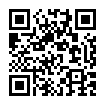Идеология как предмет научного дискурса
Научная статья
Аннотация
Литература
Вебер М. Хозяйственная этика мировых религий: Опыты сравнительной социологии религии. Конфуцианство и даосизм / М. Вебер. – Санкт-Петербург: Владимир Даль, 2017. – 446 с.
Грамши А. Тюремные тетради. Часть первая. / А. Грамши. – Москва: Издательство политической литературы, 1991. – 560 с.
Де Траси Д. Основы идеологии / Д. де Траси. – Москва: Академический Проект; Альма Матер, 2018. – 256 c.
Енгоян А. П. Психологический подход к идеологии: от Фрейда к Парето / А. П. Енгоян // Научная мысль Кавказа. – 2007. – № 3 (51). – С. 21–28.
Манхейм К. Избранное. Диагноз нашего времени / К. Манхейм. – Москва: Юрист. – 1994. – 700 с.
Маркс К. Немецкая идеология. / К. Маркс, Ф. Энгельс. – Москва: Политиздат, 1988. – 574 с.
Мусихин Г. И. Методология исследования идеологий: от поведенческого анализа к постструктуралистским контекстуальным моделям / Г. И. Мусихин // Политическая наука. – 2013. – № 4. – С. 11–30.
Парето В. Компендиум по общей социологии / В. Парето. – Москва: Изд. дом ГУ ВШЭ, 2008. – 511 с.
Фрейд З. Тотем и табу / З. Фрейд. – Санкт-Петербург: Азбука-классика, 2005. – 256 с.
Юнг К. Г. Архетипы и коллективное бессознательное / К. Г. Юнг. – Москва: AST Publishers, 2020. – 150 с.
Ясперс К. Смысл и назначение истории / К. Ясперс. – Москва: Политиздат, 1991. – 527 с.
Arendt H. The Origins of Totalitarianism / H. Arendt. – San Diego, New York, London: A Harvest/HBJ Book, 1973. – 527 p.
Bell D. The end of ideology; on the exhaustion of political ideas in the fifties / D. Bell. – New York: Collier Books, 1962. – 484 p.
Geertz C. The Interpretation of Cultures. Selected Essays. / C. Geertz. – New-York: Basic Books, 1973. – 479 p.
Fukuyama F. The end of history and the last man / F. Fukuyama. – New York: The Free Press, 1992. – 418 p.

Поступила: 19.04.2024
Опубликована: 27.06.2024





